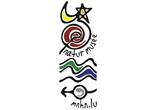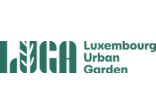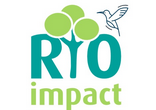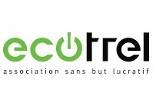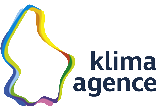
Tap water in luxembourg - Think twice before you drink it
So from previous newsletters you know quite well that that nation branded Luxembourg is still not compliant with “urban waste water treatment directive”, providing for secondary (biological) waste water treatment, and even more stringent treatment where necessary although this directive was adopted in 1991, so 25 years ago ! And you do know that only three (3 !) surface water bodies among 102 are for the moment in a good ecological status. The hydrological insufficiencies are top rated, followed by the biological deficiencies and the chemical overloads, especially nitrates and phosphates.
And not a single (0 !) of the 102 surface water bodies can be labelled as good for chemical status. Pollution caused by pesticides and polycyclic aromatic hydrocarbon (PAH) compounds are the driven forces for the catastrophic rating. (see the two graphs below)
As a result varieties like the freshwater pearl mussel and thick shelled river mussel are now so rare that a rescue operation is under way in the north of Luxembourg to help revive them through breeding and restoring their habitats. A series of factors in Luxembourg are preventing these tiny mussels from surviving into adulthood. Among the main reasons is the sediment being carried by tributaries into waterways clogging up the river beds where the mussels grow and feed. The decimating of freshwater pearl mussels is a clear indicator that the country’s water resources are unsustainable.


National water resources were, are and will continue to be under enormous pressure. Last month there were several articles published pointing to the political commitment to transform tiny Luxembourg in a 1.1 million member state regardless the environmental damage such a project will involve. As Luxembourg is an economic hot spot for the Grand Region, probably some 500,000 commuters will carry further pressure on local resources.
According to those facts one could imagine that the water treatment plants are equipped or upgraded with enhanced but cost intensive treatment technologies to assure a top quality beyond the drinking water act of the year 2002. One you imagine and except that active carbon filtration or membrane based filtration processes are standards of the water supply syndicates in Luxembourg.
Membrane technology has become a high valued separation technology that it works without the addition of chemicals. Membrane technology is a generic term for a number of different, very characteristic separation processes. These processes are of the same kind, because in each of them a semi permeable membrane is used. The principle is quite simple : the membrane acts as a very specific filter that will let water flow through, while it catches suspended solids and other substances. Certain substances can pass through the membrane, while other substances are caught. Activated carbon filtration is another highly recommended adsorption process where a solid, in this case the active carbon, is used for removing a soluble substance from the water. One major characteristic is that activated carbon has a very big internal surface (up to 1.500 m2/g) and this huge surface make its predestined for adsorption especially for non-polar substances such as mineral oil, BTEX (important petrochemical materials) and poly aromatic hydrocarbons (PAH).
SEBES, the local biggest national drink water supplier, does not use the membrane technology or the active carbon filtration process to remove critical substances such as pesticides, PAH or toxins from algae’s. Since 31th August 2016, it is the last day of the official annual swimming season, the public authorities informed bathers to stop from swimming in Luxembourg’s Upper Sûre Lake because of an outbreak of three species of potentially toxic producing algae. Furthermore, people should not allow dogs to drink water from the lake and caught fish from the lake should not be eaten fish. And people who suffer health problems after bathing in the lake are urged to consult their general practitioner.
In October 2014 authorities have decided to stop using water from the Lac de la Haute Sûre for drinking water treatment, following the spread of a pesticide in the water after a spill in Belgium. Initially thought to be the result of a spill in the Walonie region of Belgium, analyses have shown that the pollution of the water with metazachlor herbicide is not connected to the incident. Public authorities had applied to the European Commission to suspend some of its regulations, a measure foreseen in the EU drinking water directive. As a result of intensives analyses, public was informed that one of three water sources were polluted by pesticides. The map above shows the municipalities where drinking water is not compliant to the drinking water act.
Scientific work has proven that the health status for surface water bodies in Luxembourg is bad and that one third of groundwater sources are polluted by pesticides in Luxembourg. But this is not all – there exist other good reasons to be sceptical about the tap water in Luxembourg :
- Did you know that aluminium is added to water for technical reason. There is no doubt that compounds based on aluminium affects human health. SEBES, the local water syndicate still uses day-in day-out aluminium salts in the water treatment process. In the end, drinking water leaves the plant with an aluminium residue of 0,02 mg/l.
- Critical by-products induced by chlorine disinfection. Disinfection is done when you do not trust in your treatment and supply infrastructure. Different studies say that by-products can be considered potentially carcinogenic.
- Tap water finally is a cocktail of micro-organisms. Micro-organisms that are not harmful will remain in the tap water as there is filtration level to sort them out. Those micro-organisms that are harmful will be inactivated by chemical or physical disinfection. The “dead” particles are not filtered out but stay in your tap water.
Now you wonder why your local water supplier has not told you that ? Maybe because you have not asked the operator. Or maybe the technical staff you asked is not conscious about these details. So the question is what can you do to benefit a valuable tap water ? Well, you can retreat your tap water before using it to drink, brew tea or coffee, or cook. A reliable option is the use of membrane based filtration systems for further enhanced water decontamination. In combination with pre filters reverse osmosis system is a very efficient filtration system.

In Luxembourg there exist three providers of commercialised membrane based water filters : Myriado cleantech, AQUAFILTER und EWELUX. The filter unit of AQUAFILTER (www.aquafilter.lu) removes contaminants like from water heavy metals, bacteria, virus, spores, allergens, endocrines disruptors, toxins of algae and pesticides for the best price. It is time to maximise the quality of your tap water. The product of aquafilter.lu is efficient, sustainable, healthy, affordable and easy to install.
If one day you watch a promotional video about multicultural Luxembourg (http://www.luxembourg.public.lu/en/le-grand-duche-se-presente/promote-luxemburg/film-presidence/index.html) please keep in mind that Luxembourg isn’t a model state for practising environmental sustainability especially not for sustainable water management. The national footprint for residents is 9,41 hag/habitant, although Luxembourg has “only” 2.30 global hectares per resident available to live and manage sustainable. The country lives on a very big foot.
Communiqué par Waasser Consulting


